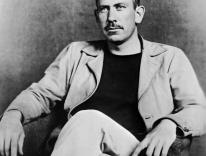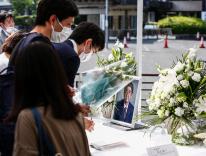Broadly Speaking
As one of the lay consultants to the U.S. Conference of Catholic Bishops Ad Hoc Committee on Religious Liberty, I found particularly interesting and thought-provoking your recent symposium discussing the statement “Our First, Most Cherished Liberty,” issued by the USCCB in April (“The Bishops & Religious Liberty,” June 15). There seems to be a common misconception, however, that the bishops were specifically reacting to the HHS mandate requiring religious organizations (and others) to pay for contraceptive services and devices, including sterilization and potentially abortion-inducing drugs (such as the “morning-after pill”). But Cardinal Timothy Dolan, as president of the USCCB, created this committee last year to address long-range and broad concerns that the voices of religious communities—of all faiths—are being marginalized in many debates about sound public policy.
The committee’s long-term focus is what the bishops and many other commentators perceive as a pervasive and often subtle notion that public policies that seem wise to legislators or administrators may be pursued without adjusting for the privileged place that the First Amendment’s “free exercise of religion” clause protects. As the bishops’ statement noted, this is not exclusively a Catholic issue but also affects other faith communities, including small sects and less popular or powerful ones.
Indeed, when Cardinal Dolan commissioned the committee last year, his discussions at the highest level of the Obama administration had led him to believe that the administration was going to solve the conscience problems posed by the original proposal for the HHS mandate. When the administration declined to remove the funding mandate, the committee’s work on those broader issues was well under way.
Several of the authors in the symposium criticized the bishops’ statement for failing to provide more background about some of the cited examples of problematic government demands or prohibitions. Others suggested that the statement did not make subtle or nuanced distinctions. The charge was leveled that some of the positions staked out were mere assertions and were not supported with arguments and analysis.
Those observations are, to some degree, accurate, but they misapprehend the nature and purpose of the statement. It was not intended to be a comprehensive commentary on the philosophical underpinnings of the relationship between church and state. Nor was it intended to rival a law review article or treatise exhaustively canvassing the field of First Amendment jurisprudence.
Instead, the statement was designed to serve as a summary overview of the bishops’ views of the religious-liberty challenges confronting American society and the role of religious liberty in our history and national identity. It was crafted to make it accessible—in a manageable, pamphlet length—by the widest possible audience, Catholic and non-Catholic, clerical and lay, scholar and non-scholar. In one sense, it already has served an important purpose, because it has “raised the consciousness” of all these audiences about the issues as the bishops see them. Your useful symposium illustrates that effect.
Still another author speculated that the statement may have ignored the Supreme Court’s widely criticized decision in the “sacramental peyote” case, Oregon Employment Division v. Smith, because the author of the opinion is Antonin Scalia, who is popular among conservative Catholics. Many commentators, including consultants to the committee, have addressed the mischief that Scalia’s opinion created. Moreover, by highlighting the church’s legal challenge to restrictive immigration laws that impinge on the church’s ministry to undocumented aliens, the bishops’ statement illustrates that the issues of religious liberty cut across philosophical labels of liberal and conservative, and across partisan divides between Democrats and Republicans.
Several authors were critical of the statement’s assertion that “an unjust law is ‘no law at all.’” They noted that there may be a whole range of laws considered “unjust” and that not all warrant response as dramatic as civil disobedience. Surprisingly, none of the authors mentioned that the bishops were quoting Martin Luther King Jr.’s “Letter from Birmingham Jail,” and that King was in turn endorsing a formulation by St. Augustine. In any event, there are other authoritative, contemporary sources, such as the Catechism of the Catholic Church and the Compendium of Social Doctrine, that discuss the range of permissible responses to civil laws that, to one degree or another, are deemed to offend the moral law.
Finally, some authors questioned whether it is imprudent for the bishops to take on such highly charged issues, especially when it is possible that the bishops’ positions may “lose” in particular controversies. That criticism simply frames the underlying problem as the bishops’ statement outlines it. It is always easier to stay silent and to take the safer course. But in this situation the bishops have concluded that the obligations of Christian witness as well as respect for the American value of religious liberty justify a more active course.
Philip Allen Lacovara
Sanibel, Fla.
The Editors Reply
The irenic tone of Philip Lacovara’s letter is much appreciated. Commonweal and the contributors to the symposium agree with Lacovara that religious liberty is a paramount good and that believers and religious groups deserve accommodations from the government. How broad those accommodations should be, and the way dissatisfied religious leaders should go about making their case, is where disagreement lies. “Our First, Most Cherished Liberty” speaks in alarmist tones about an “unprecedented” threat to religious liberty and in absolutist terms about the scope of that liberty, but does not in any serious way provide evidence of the former or justification for the latter. In fact, some of the examples of threats cited by the bishops show that religious liberty enjoys generous protection from both legislatures and the courts.
Lacovara insists that the USCCB’s actions are not a narrow response to the Obama administration, but an expression of “long-range and broad” concerns. Yet it is hard to ignore the fact that those broad concerns were quite muted during the previous administration, nor is it plausible to think that the bishops would be conducting a “Fortnight for Freedom” if the administration had reversed its decision (as Commonweal has urged) on which religious institutions qualify for exemptions from the HHS mandate. Lacovara further speculates that critics “misapprehend the nature and purpose” of “Our First, Most Cherished Liberty.” The statement, he says, was not intended to be “comprehensive” but rather a “summary” of the bishops’ views. It was written to raise consciousness about these issues.
Yet the bishops’ ambitions, as put forth in the statement itself, go well beyond consciousness-raising. The USCCB calls on “all the energies the Catholic community can muster” to mount a “great national campaign of teaching and witness,” one that will resist “totalitarian incursions against religious liberty.”
Is it really too much to ask that the bishops provide a more comprehensive commentary on the supposed threats to religious liberty before they rally the Catholic community to a “great national campaign”? Might the bishops actually do some teaching before issuing what is little more than a list of talking points that can be easily manipulated by one political party and further divides Catholics? And shouldn’t the bishops think twice before quoting Martin Luther King Jr.’s remarkable “Letter from Birmingham Jail”? Is the threat of the HHS mandate really analogous to the injustices King had to contend with? In justifying civil disobedience, King was defending nonviolent action designed to bring an end to a century of legal racial segregation, laws enforced with police violence and vigilantism. “A law is unjust if it is inflicted on a minority that, as a result of being denied the right to vote, had no part in enacting or devising the law,” King explained. Can the bishops make the same complaint?
Modest Drinking Vessel
I disagree with Brian Abel Ragen’s letter (June 15) recommending “chalice” over “cup.” “Cup” may indeed suggest tea or coffee, but the very ordinary connotations of the word are in sympathy with the mystery of the transcendent God becoming a human being born in a stable, not a palace. A cup is a common, friendly thing: Let’s go for a cup of coffee. Would you like a cup of tea? “If you give one cup of water.” The cup of kindness, the cup that cheers. And now, with a bit of a jolt, a glorious understatement, “the cup of my blood.” A chalice is unusual, a distraction, a stage prop. It suffers from a basic flaw in the whole new translation: it’s overdone.
Peter Farley
Freeport, N.Y.
Please email comments to [email protected] and join the conversation on our Facebook page.
Previous Story
Ununited States
Next Story
The Hollowed Man


